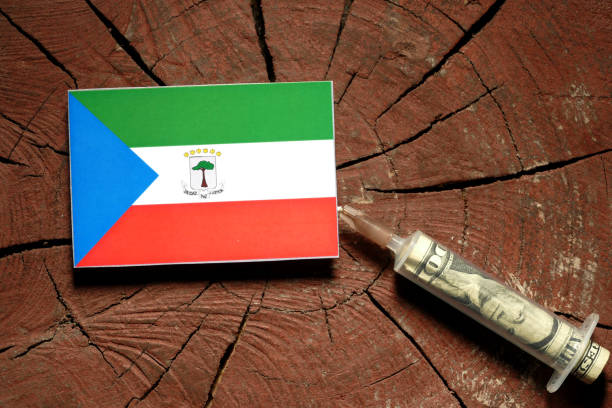The International Monetary Fund (IMF) has concluded its Article IV Consultation for Equatorial Guinea. On 25 June 2025, IMF Management approved the conclusion of both first and second reviews of the country’s Staff Monitored Programme (SMP), and granted a 12‑month extension of the programme. The country’s authorities have agreed to publish the accompanying Staff Report.
Economic Performance: A Mild Rebound, With Persistent Risks
Equatorial Guinea’s economy posted modest growth of 0.9 percent in 2024, bouncing back from a sharp contraction in 2023. Despite this recovery, growth in the non‑hydrocarbon sector slowed to just 1.3 percent in 2024. With hydrocarbon output expected to decline further, the medium‑term growth outlook remains subdued. Inflation edged higher to 3.4 percent in 2024, up from 2.5 percent in 2023.
While the banking sector showed promising improvement last year, it remains undercapitalised. The average capital adequacy ratio sits just below the regulatory threshold, although this represents a significant improvement over the position at the end of 2022.
Fiscal Consolidation and Debt Dynamics
In 2024, Equatorial Guinea executed substantial fiscal adjustment. The country improved its non‑hydrocarbon primary balance from a deficit of 22.3 percent of non‑hydrocarbon GDP in 2023 to 17.0 percent in 2024. Public debt declined from 39.1 percent to 36.4 percent of GDP. However, the country remains a net negative contributor to foreign reserves at the regional central bank, continuing a trend from 2023.
Authorities are committed to keeping public debt below 50 percent of GDP, despite the expected contraction of hydrocarbon revenues, and aim to restore external balance over time.
Structural Reforms Underway
As part of the SMP, Equatorial Guinea has introduced a suite of reforms. A new tax law broadens the tax base. Plans to phase out fuel subsidies have been presented. An arrears‑clearance strategy is underway, customs administration has been reformed, and banks are undergoing careful restructuring.
In terms of governance and transparency, the government has developed an anti‑money laundering and counter‑terrorist financing (AML/CFT) strategy. Contracts in the extractive sector have been published, and a public audit followed the 2021 Bata explosions. The authorities have met nearly all SMP quantitative targets and most structural benchmarks, though they did not publish asset declarations of public officials.
Governance Gap and the SMP Extension
Despite overall progress, the authorities failed to meet two structural benchmarks—specifically the requirement to publish public officials’ asset declarations. In response, the IMF Executive Board has allowed for a substitute governance measure: the publication of an extractive industry transparency report aligned with Extractive Industries Transparency Initiative (EITI) standards. The 12‑month extension gives the authorities time to complete this alternative reform while maintaining momentum across their broader agenda.
IMF Executive Directors’ Assessment
IMF Executive Directors broadly endorsed the staff appraisal. They praised the authorities’ reform implementation under the SMP and welcomed the 12‑month extension. Directors underscored the challenging macroeconomic environment, particularly the continued decline in hydrocarbon production, which puts pressure on both fiscal and external balances.
They stressed the need for unwavering reform—especially in governance—to support economic diversification and lay the groundwork for private sector‑led, inclusive growth. Anchoring public debt amid shrinking hydrocarbon revenues remains essential. Directors also urged the authorities to mobilise non‑hydrocarbon revenues, strengthen fiscal institutions, and pursue ambitious social spending reforms, including approving a law to establish a comprehensive social safety net.
Financial sector vulnerabilities were acknowledged. Directors encouraged finalising the arrears‑clearance plan with regional banking oversight, bolstering private banks’ balance sheets, and advancing financial inclusion policies.
Governance transparency remains a central concern. Directors recommended reconsidering the decision not to publish asset declarations and suggested an annual extraction‑sector financial flows report to signal commitment to international transparency norms. These reforms, alongside implementation of the AML/CFT strategy, are seen as key to creating a predictable business environment that may attract domestic and foreign investment.
A follow‑up Article IV consultation is expected within the standard 12‑month cycle.


